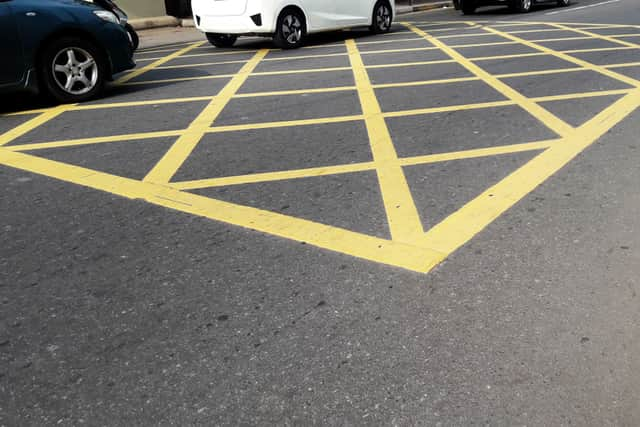June law change opens door for councils to issue new traffic fines
and live on Freeview channel 276
Councils across England can now apply for extra powers to fine drivers for a range of traffic offences.
From 1 June, legislation around “moving traffic offences” has changed to allow authorities to apply to take on certain police powers.
Advertisement
Hide AdAdvertisement
Hide AdUntil now, councils in London were the only ones in England able to issue penalty charge notices (PCNs) for issues such as ignoring road signs or blocking junctions.
However, under chages to the Traffic Management Act 2004, authorities outside the capital can now apply to the Secretary of State for Transport to be named as the local “enforcement authority”.


This gives them the power to issue fines ranging from £20 to £105, depending on the seriousness of the offence and how quickly a driver pays the PCN.
The change in authority is intended to ease pressure on police forces and make it easier for councils to enforce road rules.
Advertisement
Hide AdAdvertisement
Hide AdIt allows them to issue fines to drivers who block yellow box junctions, who drive in cycle lanes or who ignore road instructions such as no entry or no left/right turn signs.
However, motoring experts have warned that the changes could lead to an “avalanche” of unfair fines if councils do not follow the proper guidance on how to implement and enforce the rules.
Up until now only councils in London and Cardiff have had the power to issue fines for moving traffic offences and between 2016 and 2019 councils in the two cities made £86 million from such penalty charge notices (PCN). In 2018/19 alone they made more than £31m, prompting fears that councils could see the powers as an easy way to make money.
Announcing the planned change last year, Transport Minister Baroness Vere said it would give local authorities the right tools to “manage roads in the way that best serves local needs”.
Advertisement
Hide AdAdvertisement
Hide AdIt is not clear how many councils might apply for the power but the Government appears to be prepared for large numbers of applications. It has said that, depending on initial uptake of the powers, it may be necessary to deliver the Designation Orders which transfer the power in tranches.
The RAC has said that while councils need powers to stop repeated rule-breaking poorly planned or enforced rules, especially around junctions, could lead to “countless” unfair and unnecessary fines being issued.
The organisation’s head of roads policy Nicholas Lyes said: “It’s absolutely crucial that yellow box junctions are enforced fairly and, as things stand, this may not be the case, which will mean many drivers will be treated poorly and lose out financially as a result.”
There is no currently no legal requirement for councils to meet the basic design criteria of yellow box junctions - which set out the size and visibility of the markings.
Advertisement
Hide AdAdvertisement
Hide AdMr Lyes said: “We have written to the Department for Transport asking them to update the guidance to make it clear to local authorities what the minimum standard for design and condition of a box junction should be before letting enforcement begin, but they are adamant the present guidance is sufficient.
“We are worried that failing to update guidance to include the lessons learnt from more than 15 years of enforcement in London will lead to countless wrong fines being issued, no end of unnecessary stress for drivers who feel they have been unfairly treated and thousands of wasted council hours investigating appeals.”
Comment Guidelines
National World encourages reader discussion on our stories. User feedback, insights and back-and-forth exchanges add a rich layer of context to reporting. Please review our Community Guidelines before commenting.
